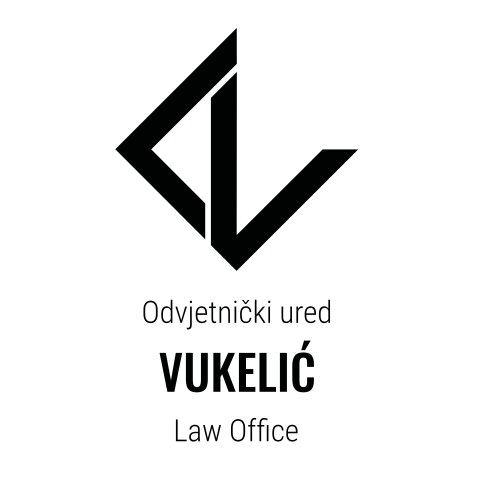Best Brokerage Lawyers in Croatia
Share your needs with us, get contacted by law firms.
Free. Takes 2 min.
Free Guide to Hiring a Real Estate Lawyer
Or refine your search by selecting a city:
List of the best lawyers in Croatia
About Brokerage Law in Croatia
Brokerage in Croatia involves the facilitation of buying, selling, leasing, or exchange of financial instruments, real estate, insurance, and other relevant services. This activity is regulated under Croatian law to ensure transparency, protect clients, and maintain market integrity. Croatian brokerage law aligns with EU regulations, providing a comprehensive legal framework to safeguard the interests of all parties involved.
Why You May Need a Lawyer
There are numerous situations where legal advice is crucial in brokerage. Firstly, if you're entering into a brokerage contract or dealing with financial or real estate transactions, a lawyer can ensure that your rights are protected and the arrangement is lawful. Additionally, legal assistance is vital when resolving disputes with brokers or other parties, as these can often involve complex legal issues. Furthermore, regulatory compliance is another area where professional legal guidance can be invaluable, helping you navigate the intricacies of Croatian and EU laws.
Local Laws Overview
Croatia has specific regulations governing brokerage activities. The key laws include the Croatian Capital Market Act, which regulates financial services, and the Real Estate Brokerage Law, which outlines the obligations and duties of real estate brokers. Legal compliance in brokerage also requires adherence to tax laws and consumer protection regulations that ensure fair dealing in the market. The Croatian Financial Services Supervisory Agency (HANFA) plays a crucial role in overseeing and enforcing brokerage regulations.
Frequently Asked Questions
What is the role of a broker in Croatia?
Brokers in Croatia act as intermediaries between buyers and sellers, facilitating transactions in various markets including real estate, financial services, and insurance.
Do I need a license to become a broker in Croatia?
Yes, brokers need to be licensed in accordance with Croatian law. This typically requires passing relevant exams and demonstrating compliance with professional standards.
How are brokerage fees regulated?
Brokerage fees in Croatia must be transparent and agreed upon in advance. They are usually a percentage of the deal value, and regulations ensure these fees are fair and justified.
Can a broker represent both parties in a transaction?
Generally, brokers should avoid conflicts of interest and represent one party in a transaction. Dual representation may occur only if it meets legal requirements and both parties consent.
What should I do if I have a dispute with my broker?
Firstly, review your brokerage agreement for dispute resolution mechanisms. If unresolved, consider consulting a lawyer or taking the matter to a relevant regulatory body such as HANFA.
Are there consumer protections for brokerage clients?
Yes, Croatian law provides robust consumer protection measures, ensuring brokers act in their clients' best interests, with transparency and fairness.
What legal issues should I be aware of when using a brokerage service?
Avoid issues by understanding your contract, ensuring your broker is licensed, and confirming that the brokerage practices comply with relevant laws and regulations.
How do brokerage laws differ between financial services and real estate?
While financial brokerage is regulated under the Capital Market Act, real estate brokerage follows the Real Estate Brokerage Law, each with distinct compliance and operational standards.
What legal obligations do brokers have in Croatia?
Brokers must adhere to transparency, diligence, and professional competency, abiding by both ethical standards and legal obligations. They must also protect client interests and secure confidential information.
Can brokerage agreements be modified after signing?
Modifications can only occur if all parties consent to changes. It’s advisable to have legal counsel review any modifications to ensure they are in your best interest.
Additional Resources
The Croatian Financial Services Supervisory Agency (HANFA) is a valuable resource for regulatory guidance. The Croatian Chamber of Commerce can also provide information and support for brokerage activities. Additionally, considering joining professional organizations for brokers in Croatia can offer networking opportunities and further support.
Next Steps
If you require legal assistance in brokerage, start by consulting with a lawyer specializing in this field. Research local legal firms with expertise in Croatian brokerage law, and consider scheduling a consultation to understand your legal position and options. It may also be beneficial to contact relevant regulatory bodies for advice on compliance and dispute resolution.
Lawzana helps you find the best lawyers and law firms in Croatia through a curated and pre-screened list of qualified legal professionals. Our platform offers rankings and detailed profiles of attorneys and law firms, allowing you to compare based on practice areas, including Brokerage, experience, and client feedback.
Each profile includes a description of the firm's areas of practice, client reviews, team members and partners, year of establishment, spoken languages, office locations, contact information, social media presence, and any published articles or resources. Most firms on our platform speak English and are experienced in both local and international legal matters.
Get a quote from top-rated law firms in Croatia — quickly, securely, and without unnecessary hassle.
Disclaimer:
The information provided on this page is for general informational purposes only and does not constitute legal advice. While we strive to ensure the accuracy and relevance of the content, legal information may change over time, and interpretations of the law can vary. You should always consult with a qualified legal professional for advice specific to your situation.
We disclaim all liability for actions taken or not taken based on the content of this page. If you believe any information is incorrect or outdated, please contact us, and we will review and update it where appropriate.
Browse brokerage law firms by city in Croatia
Refine your search by selecting a city.

















